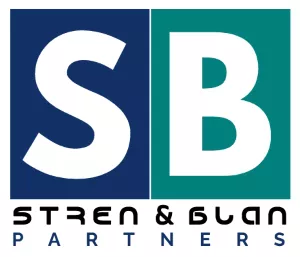INTRODUCTION
The best form of asset tracing and recovery is to follow the money. It is more than a cliché that money always leaves a trail. It is possible for money to be transformed into real assets and tangible products or to be used as payment for services. However, there is always a link to be trailed for recovery. Money is also current and flexible, hence it can be quickly dissipated, wasted, or moved from one jurisdiction to another in disguise. The aim will be to blind the Court and recovery authorities from determining the source. The goal will be to frustrate a litigant from benefiting from his effort in litigation or inhibiting any possibility of recovery. Any judgment, no matter how soundly crafted, is nugatory if enforcement is impossible. Therefore, it becomes the duty of the Court to protect the subject matter of litigation where there is a reasonable suspicion of imminent risk of destruction, dissipation, or depletion attributable to the defendant in possession. As such, the jurisprudence upon which the idea of freezing orders is founded is preservation.1
Mareva injunction is the most potent form of freezing order and the Nigerian Court of Appeal expatiated on the nature and purpose of Mareva injunction in the case of Efe Finance Holdings v. Osagie, Ors and Co.2 as follows:
Mareva Order is in reality, a security for judgment. Its purpose is not only merely to preserve the res as ordinary injunctions do. It is more than just that. It is also to secure assets for execution of an anticipated judgment.
The concept of territoriality of the judicial power under the Constitution of the Federal Republic of Nigeria, 1999 (as amended),3 limits the reach of the Orders of the Nigerian Court to assets and individuals within Nigeria.4 Generally, courts operate within their statutory jurisdiction and that is why the issuance of Freezing Orders with extraterritorial effect is an exception. This is a similar trend among the global community to preserve respect for the sovereignty of States.5 However, the sophistication introduced into international business justifies a need for a more radical preservative approach to the prevention of asset stripping and dissipation. Especially, in serious cases of Ponzi Scheme, cross-border commercial relationship, blockchain, and decentralized finance where assets may have been placed in foreign accounts or located in a foreign jurisdiction or in space wherein the debtor is completely removed from the jurisdiction of the Local Court or any Courts at all. A WWFO allows a Respondent's assets located across the world to be frozen, rather than those limited to the jurisdiction where the Order is issued.
FREEZING ORDERS AND WORLDWIDE FREEZING ORDERS
In simple terms, Freezing orders and Worldwide Freezing Orders (WWFOs) are restrictive orders prohibiting certain levels of dealings and interaction with the subject matter of a dispute pending before a Court of Law or an Arbitral panel. These orders may be sought and obtained before the commencement of the Proceedings in extraordinary circumstances of exigencies.6
Therefore, freezing orders may be interim or interlocutory orders restraining a Respondent from disposing of, or adversely dealing with, its own assets until the determination of a Suit filed against it. The purpose of a freezing order is not to punish a Respondent, but it is to preserve the assets, the subject matter of a dispute for the successful party at the end of litigation.7 There are several variations of these Orders including interim injunction, interlocutory injunction, and mandatory injunction. There is also the Mareva injunction and Anton Piller injunction. 9 The common factor to these orders is that the Respondent cannot deal adversely with the assets until the Court has decided except for a mandatory injunction which may reverse an act already done. There is another variant of freezing orders referred to in this paper as statutory freezing Orders. 9
The radicality of the statutory freezing orders is a result of the intention to combat the menace of debtors setting up unreasonable obstacles to make recovery difficult.10 In many situations, legal and statutory development is forced out of reaction to the social problems for the purpose of coping with the social menace. The development of Worldwide Freezing Orders is not farfetched from the law trying to grapple with the social menace.
Worldwide Freezing Orders are traceable to English law. They are built on the same preservative jurisprudence as the Mareva injunction. Their uniqueness is contained in their viability to attach assets outside the jurisdiction of the Court that makes the orders. Just like the current judicial disposition in Nigeria, Freezing Orders were completely territorial in England. The English Court had the power only to restrict adverse dealing within the English Court's jurisdiction.
To view the full article click here
Footnotes
1. See Mareva Compania Naveira v. International Bulk Carrier Ltd (1975) Lloyd's Rep. 509. See also the case of Akingbola v. E.F.C.C (2012) 9 NWLR (pt. 1306) 475. Various Rules of Courts in Nigeria have provisions for preservation. See for instant, Order 28 of the Federal High Court (Civil Procedure) Rules, 2019.
2. (2000) 5 NWLR (Pt. 658) 536.
3. See section 6 (1) of the Nigerian Constitution which states that: "the judicial powers of the Federation shall be vested in the Courts to which this section relates, being Courts established for the Federation."
4. See the case of Heyden Petroleum Limited v. Top Leader Shipping Inc (2018) LPELR-46680(CA), where the Court of Appeal stated that:
5. Even the English Court had to debate the issue of territoriality under section 37(3) of the Supreme Court Act, 1981.
6. See the pronouncement of Obande Festus Ogbuinya, JCA at pages 19 – 21, paragraphs A -C in Chellarams Plc v. UBA PLC (2022) LPELR-57845(CA).
7. See "A Practical Guide to Freezing Orders" (The 2TG Commercial Fraud Team, March, 2023). Available at https://www.2tg.co.uk/wpcontent/uploads/2023/04/2TG_Practical_Guide_to_Freezing_Orders_March_2023.pdf. Retrieved on 24/4/2024.
8. The Anton Piller achieves a very different purpose. It preserves the evidence and material facts from being destroyed by the Respondent. It is usually used in an action for the infringement of intellectual property. See section 38 of the Copyright Act, 2022.
9. These are Orders that the Courts are permitted to make pursuant to the specific provisions of the Statutes. For instance, section 50 of the Asset Management Corporation of Nigeria Act, 2010 (as amended) provides that:
10. Asset Management Corporation of Nigeria (AMCON) enjoys the privilege to apply to the Court for Statutory Freezing Orders.
The content of this article is intended to provide a general guide to the subject matter. Specialist advice should be sought about your specific circumstances.
We operate a free-to-view policy, asking only that you register in order to read all of our content. Please login or register to view the rest of this article.




